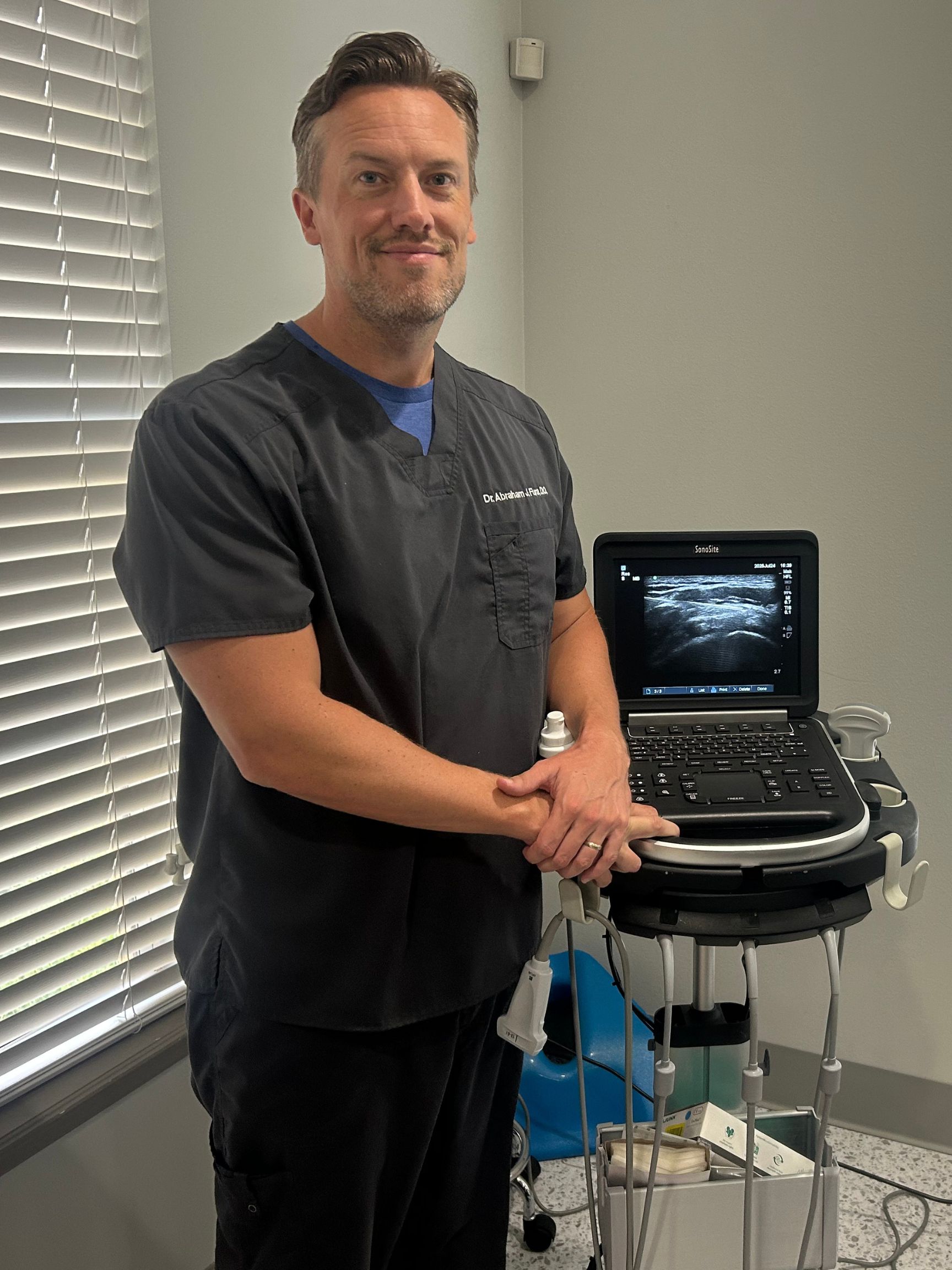
CONDITION OVERVIEW
Nerve pain, or neuropathic pain, is different from the pain you feel from a cut or a pulled muscle. It's caused by damage or dysfunction within the nervous system itself. Think of it like a faulty fire alarm: the alarm is ringing (you feel pain), but there's no actual fire (no tissue injury). Instead, the wiring is the problem. This "faulty wiring" can cause strange and distressing sensations like burning, shooting, or electric shocks. An accurate diagnosis to find the source of the nerve irritation is the critical first step to effective relief.

COMMON CAUSES
Nerve pain can arise whenever nerves are compressed, damaged, or affected by disease. Many of these causes are rooted in structural problems in and around the spine.
This is a primary cause. Conditions like a herniated disc, spinal stenosis, or bone spurs can physically pinch a nerve root, causing radiating nerve pain (radiculopathy).
Conditions like diabetes are a leading cause of neuropathy. Others include shingles (postherpetic neuralgia), vitamin deficiencies, and autoimmune diseases.
A direct blow, cut, or stretch injury from an accident, fall, or surgery can physically damage a nerve, leading to chronic neuropathic pain.
Nerves can become trapped by surrounding tissues in tunnels throughout the body, such as in the wrist (Carpal Tunnel Syndrome) or elbow (Cubital Tunnel Syndrome).

RECOGNIZING THE SIGNS
Nerve pain feels distinctly different from other types of pain. The sensations are often confusing and can range from mildly annoying to completely debilitating.
The hallmark symptom. A sharp, jabbing, or electric shock-like sensation that travels along the path of a nerve.
A persistent, painful burning feeling that can be constant and is not related to temperature.
An irritating sensation of tingling, prickling, or numbness, much like when a limb "falls asleep," but it doesn't go away.
A specific symptom called allodynia, where normally non-painful stimuli, like the touch of bedsheets or clothing, cause severe pain.
Damaged nerves may not properly signal your muscles, leading to weakness, loss of coordination, or muscle twitching.
A partial or complete loss of sensation in the affected area, which can be dangerous as it may lead to unnoticed injuries.
If you're experiencing burning, shooting, or tingling pain, you know it's different from a simple muscle ache. This is a sign that your nervous system is in distress. An accurate diagnosis to find the source of the nerve irritation is the first step toward a targeted treatment plan that can calm your nerves and restore your comfort. Contact us to learn more.